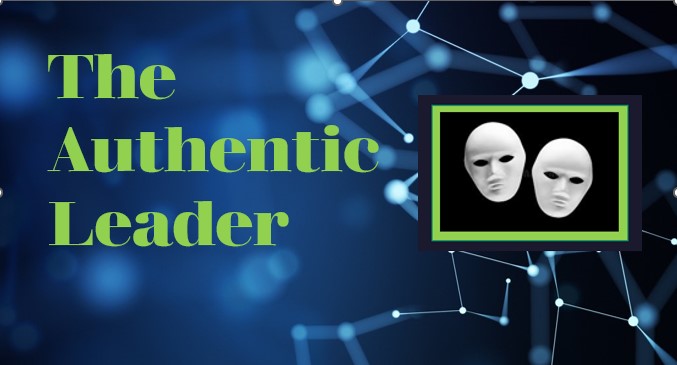The metaverse, a more immersive internet still in nascent stages, is expected to be a trillion-dollar industry in years ahead.
In prior articles, I’ve introduced three critical leadership qualities needed in the metaverse, to move from individual-focused online worlds of “WebMe,” to a community-focused hybrid worlds of “WebWe.”
The three essential leadership skills include being an Agile Strategic Leader, being an Authentic Leader, being a Servant Leader-Community Builder. (Note – the idea of “being” is truly a journey of “becoming” – it’s an evolutionary process!)
Why is authenticity so important as immersive media environments evolve?
In online worlds, people will assume digital personas – avatars. Think of your avatar – or potentially your multiple avatars – as your digital representation. For example, you might want to show up as a cartoon for certain events, or in your photo likeness for other settings.
When we’re in the physical world, we see other people as their flesh-and-blood human selves. But in the metaverse, you might choose to appear as one of an infinity of avatar options to suit your mood, and the occasion.
Determining who and what is “real” will become challenging.
The Authentic Leader earns and nurtures trust. People hunger for believability in other human beings.
Authentic leaders build trust in both physical and digital worlds, even when taking on the form of an avatar.
According to research, a leader’s trust is based on three essential qualities.[1] Consider how you might demonstrate these, whether in-person or online:
- Genuine concern for other human beings,
- Personal integrity, and
- Personal abilities or competence.
While it may seem obvious that authenticity is key when it comes to being a good leader, creating an authentic digital presence isn’t always easy. For example, if you’ve ever recorded yourself and then watched it, you’ve probably noticed that oftentimes your voice or behavior changes.
While the subtle change of your voice is no big deal, you want to make sure you’re not changing who you are just because you’re interacting through a digital medium. Being an authentic leader means learning how to make your digital persona just as smart, empathetic, professional, and human as your in-person self.
Demonstrating consistency of behavior, actions and decisions is key for authentic leadership, says Richard R. Smith, professor and vice dean of Corporate and Global Partnerships at the Johns Hopkins University Carey Business School.
“Gone are the days of having a ‘Public Face’ of leadership and a ‘Private Life’ that is inconsistent with our leadership brand,” Smith notes. “In fact, our leadership brand is already being formed at a young age thanks to our digital footprint and image that we may, or may not, have intended to create.” [2]
To earn and nurture trust in both digital and physical worlds, authentic leadership research emphasizes four leadership dimensions.[3]
- Self-awareness: Understanding how you make meaning of the world and how that meaning-making process affects self-image over time; awareness of strengths, weaknesses, your multifaceted nature, and your impact on others.
A good self-assessment question: Can I list my three greatest strengths, and three greatest weaknesses?
- Relational transparency: Creating truth and fostering trust and transparency—not Being consistent to do what you say.
Good self-assessment questions: Can I openly share my feelings with others? Am I presenting my authentic self to others, promoting trust through disclosure, information sharing, and the expression of true thoughts and feelings?
- Balanced processing: Objective analysis of all relevant data before making decisions; a willingness to solicit and consider views that challenge your own.
A good self-assessment question: Do I seek feedback and others’ opinions before making up my own mind?
- Internalized moral perspective: Self-regulation guided by internal moral standards and values rather than external standards; behaving and making decisions consistent with these internalized values.
A good self-assessment question: Do my actions reflect my core values?
For more tips about cultivating Authentic Leadership qualities, see Chapter 6 in Leadership in the Metaverse: Creating the Future of WebWe Through Strategy and Community Building (Fast Company Press, 2023).
[1] Mayer, Roger C., Davis, James H. and Schoorman, F. David (1995). “An integrative model of organizational trust.” Academy of Management Review; 20(3).
[2] Smith, Richard R. (2023). “Authentic leadership in the digital age.” People Matters. https://www.peoplemattersglobal.com/article/leadership/authentic-leadership-in-the-digital-age-23063.
[3] Neider, L. L., & Schriesheim, C. A. (2011). “The authentic leadership inventory (ALI): Development and empirical tests.” The Leadership Quarterly, 22(6), 1146–1164.




